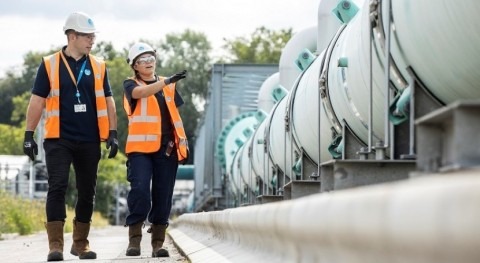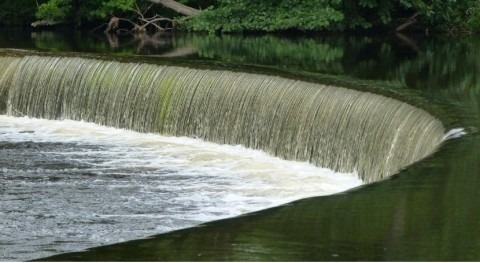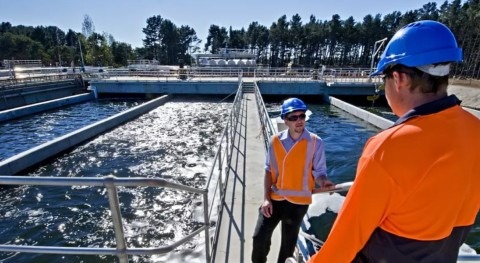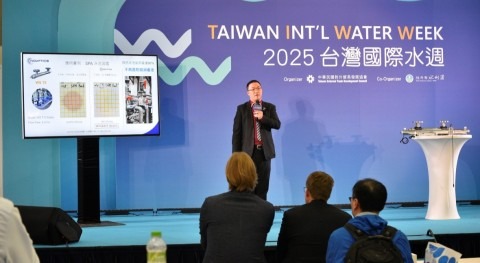The Council of the European Union has approved conclusions on the European Water Resilience Strategy, endorsing a coordinated approach to strengthen water management and resilience across the continent. The agreement marks an important policy step as Europe faces mounting challenges from water scarcity, pollution, and the impacts of climate change.
The conclusions, adopted by EU environment ministers, support the European Commission’s vision for a comprehensive framework to restore and protect the water cycle, ensure access to clean and affordable water for all, and build a more sustainable and competitive water economy.
“Ensuring water resilience is not only crucial for the environment but also for the security and stability of our societies,” said Magnus Heunicke, Minister for Environment and Gender Equality of Denmark, who chaired the meeting. “Ministers welcomed the strategy presented by the Commission as a holistic framework to secure clean water for all while making the EU’s economy more competitive. We must work together, across all levels, to ensure that water management becomes an integral part of our shared efforts to tackle climate change and strengthen our preparedness for future crises.”
The Council’s endorsement comes amid growing concern over the deteriorating state of Europe’s water resources
The strategy, first presented by the European Commission in June 2025, is built on three main pillars: restoring and protecting the water cycle, developing a water-smart economy, and ensuring clean and affordable water for all. The Council’s endorsement comes amid growing concern over the deteriorating state of Europe’s water resources. According to recent Commission assessments, 34% of the EU territory is affected by water scarcity, while only 37% of surface water bodies have good ecological status and less than 30% meet good chemical standards.
Integrated and cross-sectoral action
In their conclusions, ministers emphasized the cross-cutting nature of water resilience, calling for stronger coordination between EU institutions, Member States, and stakeholders across all sectors, including agriculture, energy, industry, and urban development. The Council highlighted that effective water management must address not only environmental protection but also economic competitiveness, food security, and crisis preparedness.
The document stresses the urgent need to restore the water cycle as the foundation for water supply and healthy ecosystems, and to integrate climate change scenarios into long-term water and infrastructure planning. Ministers also underlined the importance of preventing water pollution at its source, including tackling emerging contaminants such as PFAS and other persistent chemicals.
In addition, the conclusions call for improved implementation of existing EU water legislation, noting that insufficient funding and human resources have hindered progress in some Member States. The European Commission is invited to support countries in closing implementation gaps and to initiate structured dialogues to exchange best practices and identify solutions.
Infrastructure, digitalisation, and innovation
The Council recognises that modernising water infrastructure is essential for resilience, particularly in remote regions and islands where access remains uneven. It calls for investment in efficient water distribution systems, leakage reduction, and innovative solutions that combine technical and nature-based measures.
The Council recognises that modernising water infrastructure is essential for resilience, particularly in remote regions and islands where access remains uneven
Digitalisation and innovation feature prominently in the strategy. The conclusions support the development of an EU-wide Action Plan on digitalisation in the water sector, including smart metering, remote monitoring, and the use of artificial intelligence to predict hydrological extremes. Ministers also encourage investment in research and innovation to support the scaling and deployment of new water technologies, as well as education and training to build the next generation of water professionals.
The Council further highlights the strategic role of non-conventional water resources, such as treated wastewater reuse and sustainable desalination, especially for countries with limited freshwater availability. A “water efficiency first” approach, it says, should guide all sectors of the economy.
Financing resilience
The Council conclusions acknowledge the investment needs associated with achieving water resilience goals and call for the mobilisation of both public and private funding, including EU instruments such as the European Investment Bank’s Water Resilience Programme. The text also notes that water-related provisions in the Common Agricultural Policy and the next Multiannual Financial Framework will be key to promoting sustainable practices.
Ministers stress that economic incentives and cost recovery mechanisms should encourage efficient and sustainable water use, while warning that the cost of inaction must be factored into future investment decisions.
Water and security
Water resilience is framed as a matter of security and crisis preparedness. The Council highlights the need to protect water infrastructure from threats such as cyberattacks, sabotage, and external disruptions to supply. It also welcomes the European Commission’s plan to adopt a Climate Resilience and Risk Management initiative in 2026, aligning it closely with the Water Resilience Strategy.



















